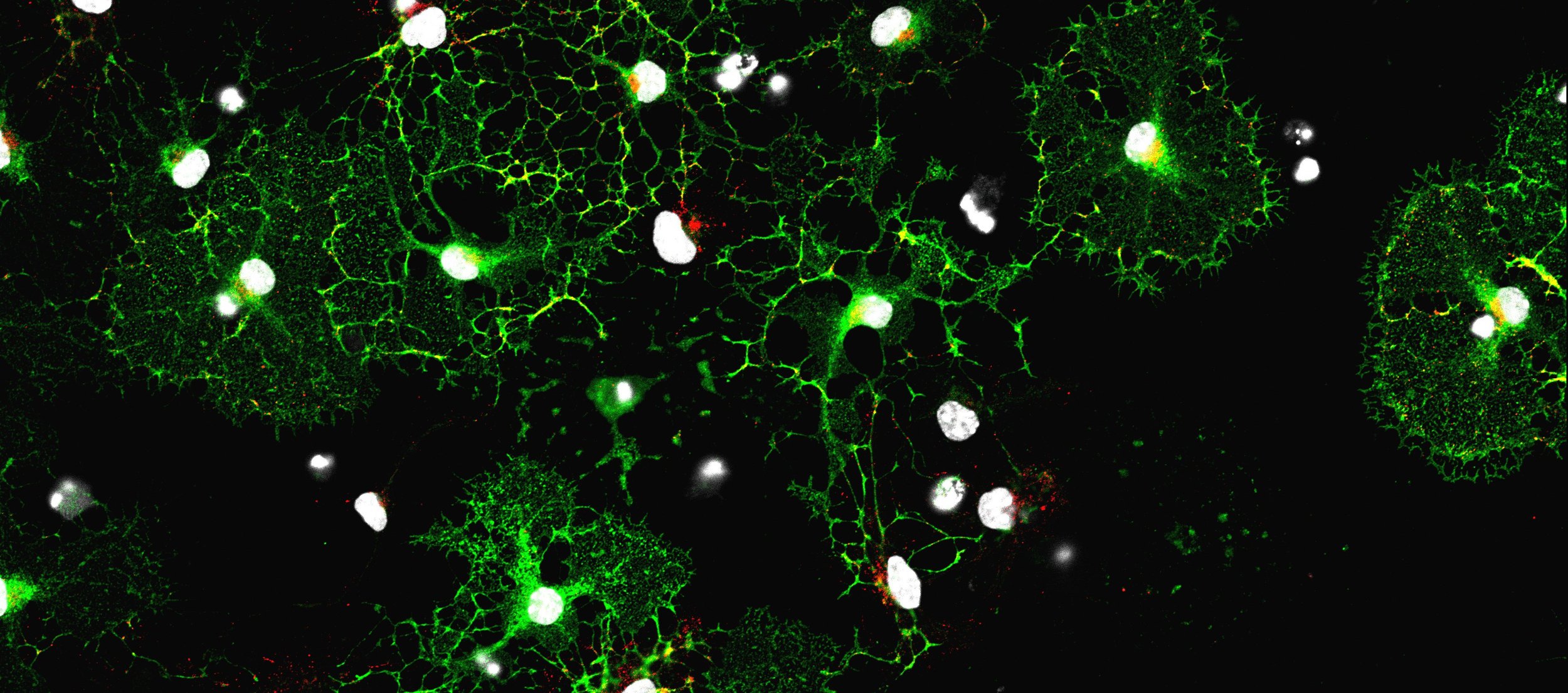
Research
Research projects
How aging affects oligodendroglial cells in the central nervous system?
How can it directly impact brain cognition in aging and in neurodegenerative diseases?
Can we rejuvenate old oligodendroglial cells?
The oligodendroglial cell lineage
In the central nervous system, oligodendroglial cells represent an abundant cell population with critical functions, as they sense, regulate, and provide insulation and trophic support to neurons. From oligodendrocyte progenitor cells (OPCs) to myelinating oligodendrocytes (OLs), the oligodendroglial lineage is therefore crucial for normal neurological functions, such as brain plasticity.
With age, in parallel with a profound decline of cognitive abilities, oligodendroglial capacities have been shown to decline. Defective myelination has been attributed to age-related epigenomic, transcriptomic and phenotypic changes in adult oligodendroglial cells, affecting their myelinating properties.
Aging oligodendroglial cells & Cognition
If neuronal circuits are the base of brain organization, an accumulation of evidence has now highlighted the role of oligodendroglial cells in brain plasticity. However, how age-related changes in oligodendroglial cells might explain cognitive deficits during aging is still unknown.
By challenging our aging-like oligodendroglial-specific mouse model with a battery of behavioral assays, we address the role of oligodendroglial cells in cognitive decline.
How age-related changes in the oligodendroglial lineage directly impact cognitive function in aging?
Oligodendroglial cells in Diseases
Recently, an accumulation of evidence has highlighted the role of glial cells in a myriad of neurological, neurodegenerative and psychiatric diseases. However, the role of oligodendroglial cell lineage in the pathogenesis of pathology, such as Alzheimer’s Disease, remains largely unknown.
By combining transcriptomic approaches and behavioral assays, we decode how oligodendroglial cells contribute to the pathogenetic onset of psychiatric and neurodegenerative diseases.
How age-related dysfunctions in oligodendroglial cells could directly drive neurodegeneration susceptibility and disease onset?
Oligodendroglial cell-cell communication
The cross-talk between oligodendroglial cells and other cell types in the central nervous system, especially neurons, is essential for brain plasticity and cognitive functions.
By characterizing the molecular mechanisms that regulate neuro-oligodendroglial interaction, from a specific oligodendroglial point of view, we highlight novel oligodendroglial functions in cell-cell communication, and their dysregulations in aging and age-related diseases.
How age-related changes in the oligodendroglial lineage directly impact neuro-oligodendroglial communication?
Rejuvenating the brain
Currently, we are still lacking strategies to rejuvenate the brain and maintain longer neurological functions in aging and age-related diseases. Our better understanding of adult oligodendroglial proprieties is a crucial first step towards the development of strategies to rescue myelin plasticity and repair capacity with age.
We are leveraging epigenetic activators known to be dysregulated in aging, in combination with non-invasive delivery tools, to reactivate cells in our aging and disease models.
Development of translational strategies to rejuvenate oligodendroglial cells and improve brain cognition in aging and disease.
Tools & Techniques
Transcriptomic & Epigenomic sequencing
Cell culture assays & Histology
Rejuvenating translational tools
Mouse injury models & Behavioral assays














